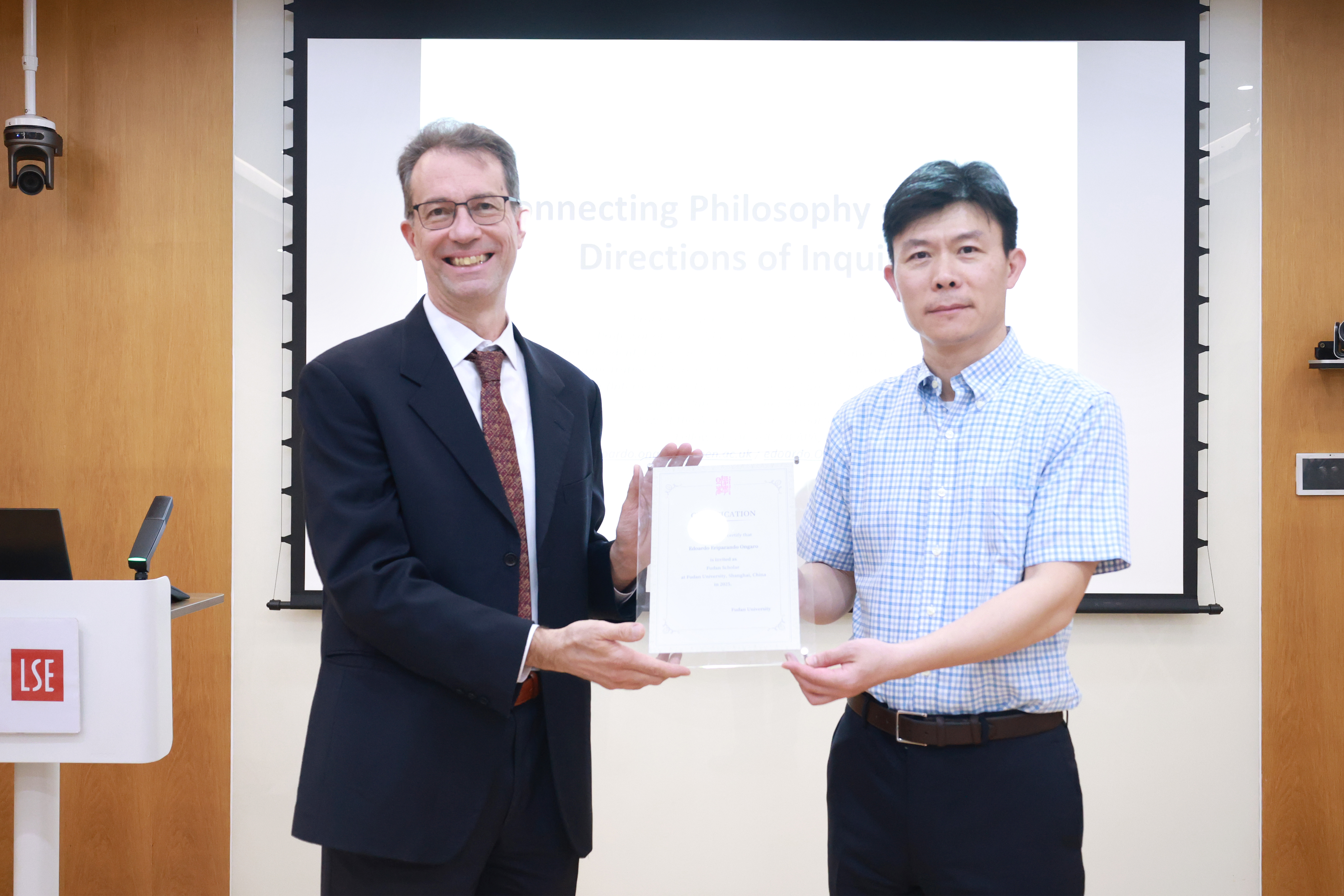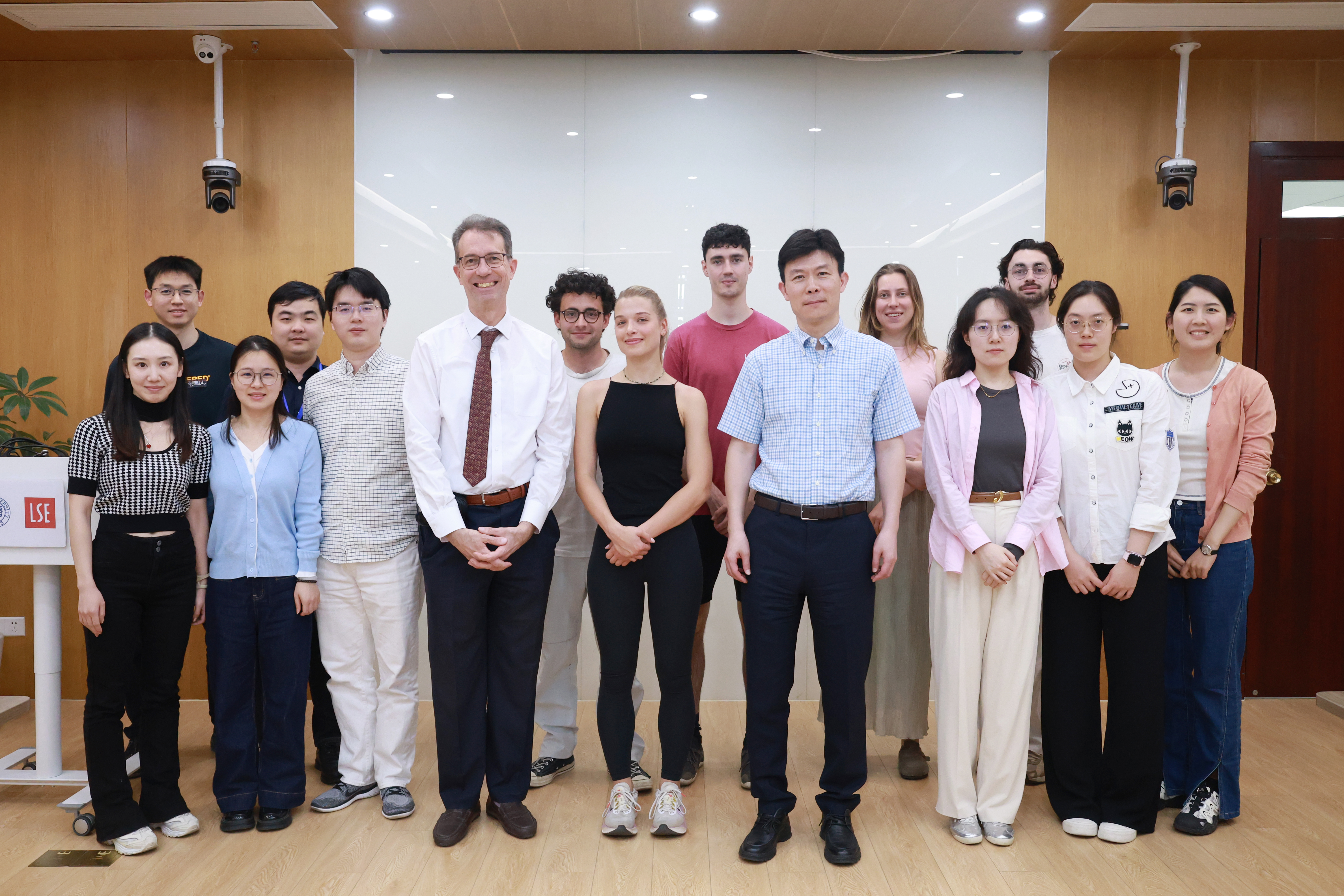
On March 26, 2025, the Fudan Institute for Global Public Policy (IGPP) organized the 69th lecture of the Fudan-LSE Lecture Series. Professor Edoardo Ongaro from The Open University delivered a lecture on the theme of Rethinking Public Governance for the 21st Century: The Importance of (Re-)Connecting Philosophy and Public Administration, which was chaired by Yijia Jing, Dean of IGPP.
Before the lecture began, Professor Jing presented Professor Ongaro with the “Fudan Scholar” certificate issued by Fudan University. Professor Ongaro is Professor of Public Management at The Open University, UK, and serves as an editor of Public Policy and Administration, the journal of the UK Public Administration Association (UKAPA). His research focuses contextual influences and adaptation of public management practices to local circumstances.

At the beginning, Professor Ongaro proposed four key research directions for promoting a deep integration of philosophy and public administration. He emphasized that a sound and resilient public administration system relies not only on material resources and governance capacity but also on a solid philosophical foundation. When public administration is viewed solely as a technical tool, its inherent philosophical value is often overlooked. Professor Ongaro argued that philosophical methods offer innovative theoretical tools to reconsider core governance issues, helping to address conceptual gaps in existing frameworks. Moreover, philosophy can reveal implicit assumptions in public administration theory, promote interdisciplinary integration, and guide ethical value judgments in policy-making and administrative practices.

Professor Ongaro further emphasized that mapping backwards through philosophy can reveal the implicit philosophical premises embedded in public administration research. He advocated for retrospective analyses to clarify the philosophical underpinnings of various governance theories, thereby deepening the interdisciplinary understanding of governance issues. He also proposed the necessity of constructing an independent philosophical system for public administration, where a specialized philosophical framework tailored to public administration should be developed to address the ethical, epistemological, and ontological challenges in modern governance. Professor Ongaro also highlighted the potential of integrating Eastern and Western philosophical traditions to build a more inclusive and robust theoretical foundation for global governance, offering fresh insights for the evolution of contemporary public administration.
During the interactive Q&A session, the audience engaged in an in-depth discussion on topics such as how to incorporate philosophical analysis into empirical research. In response, Professor Ongaro emphasized that public administration is not merely a collection of governance techniques but also a reflection of underlying value systems. He argued that only by revisiting and critically examining the philosophical foundations of public administration can we more effectively confront the complex challenges of global governance.

On behalf of the IGPP, Professor Jing then presented a gift to Professor Ongaro, and the lecture concluded successfully with warm applause.




